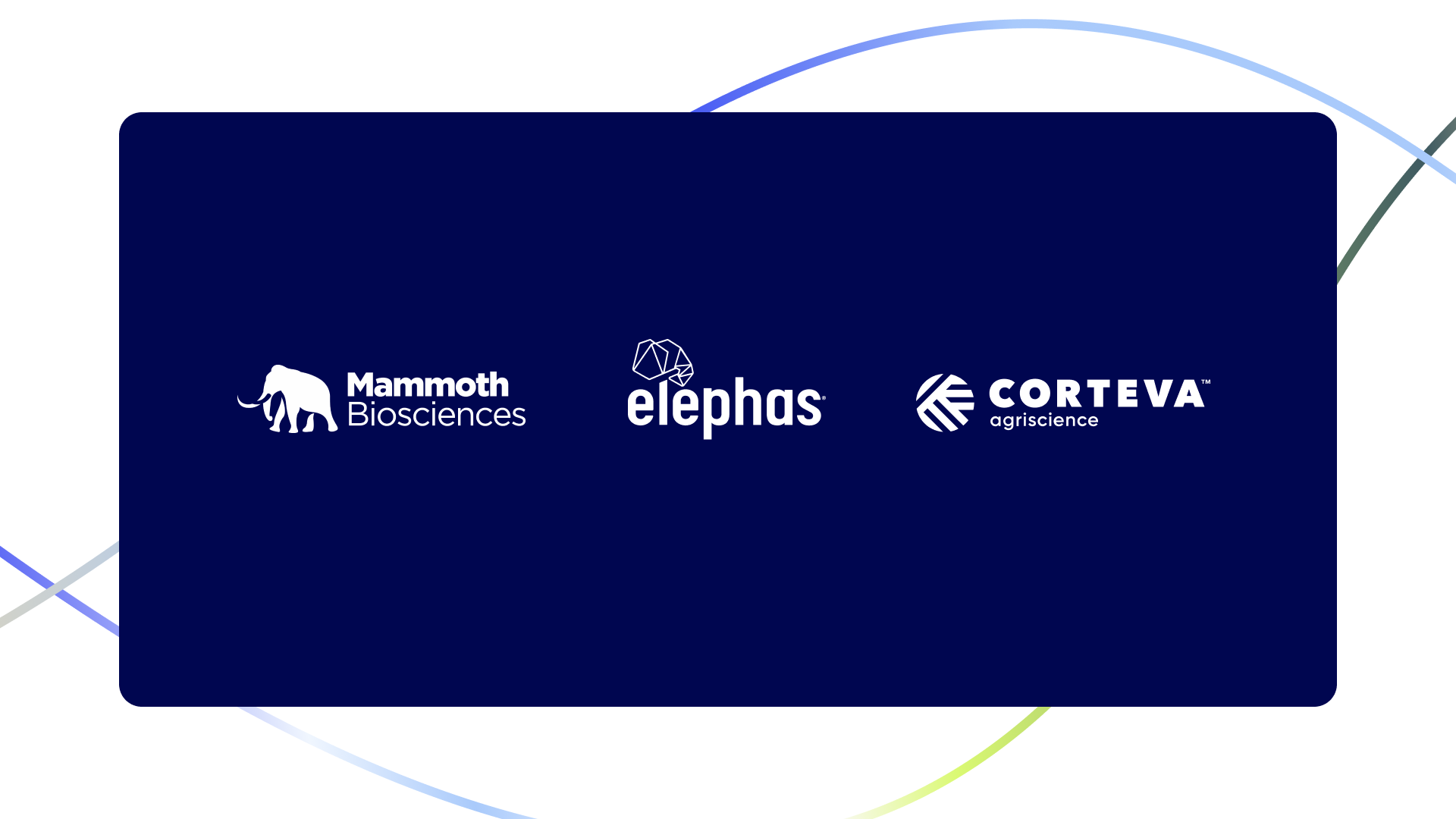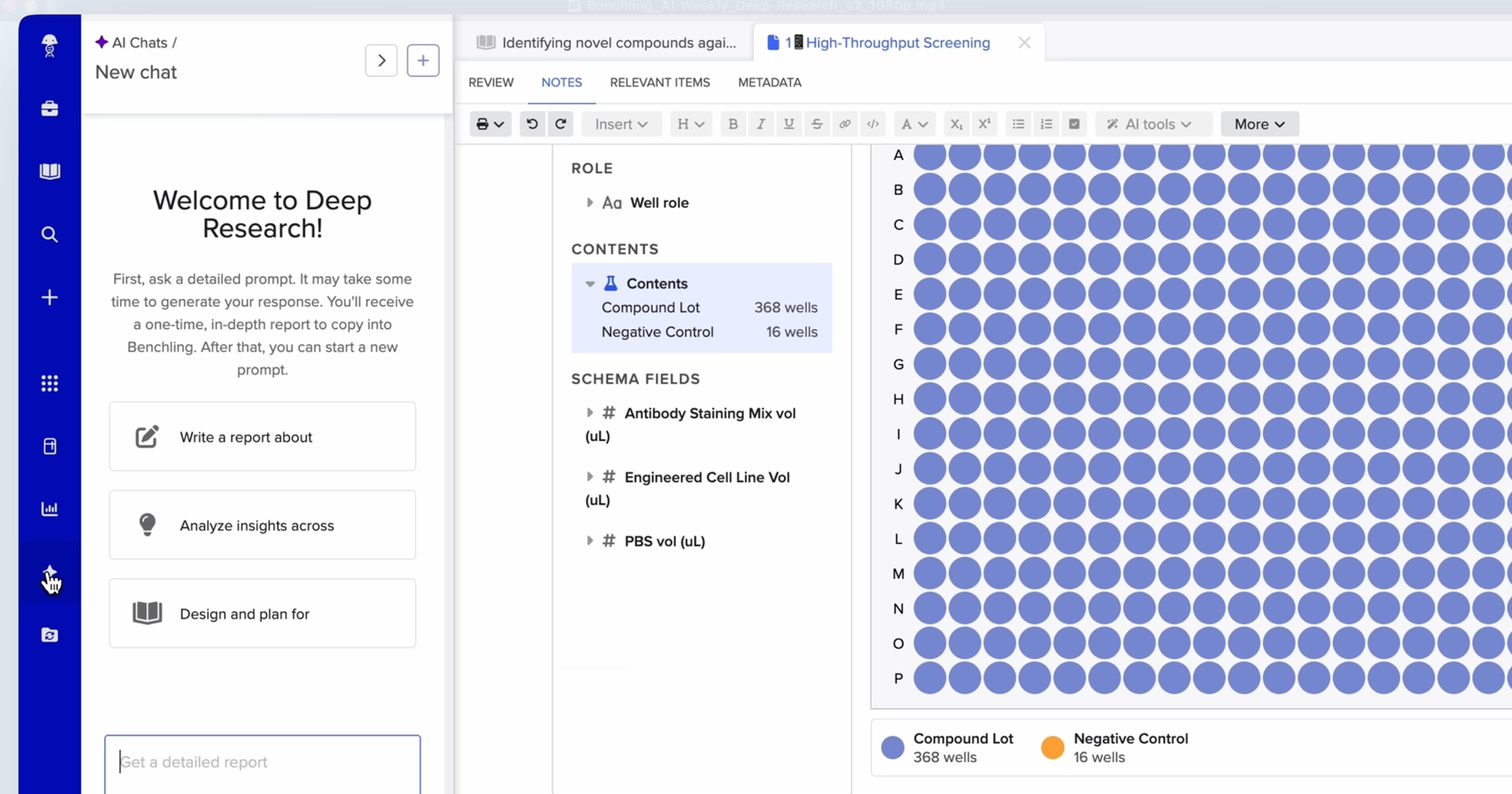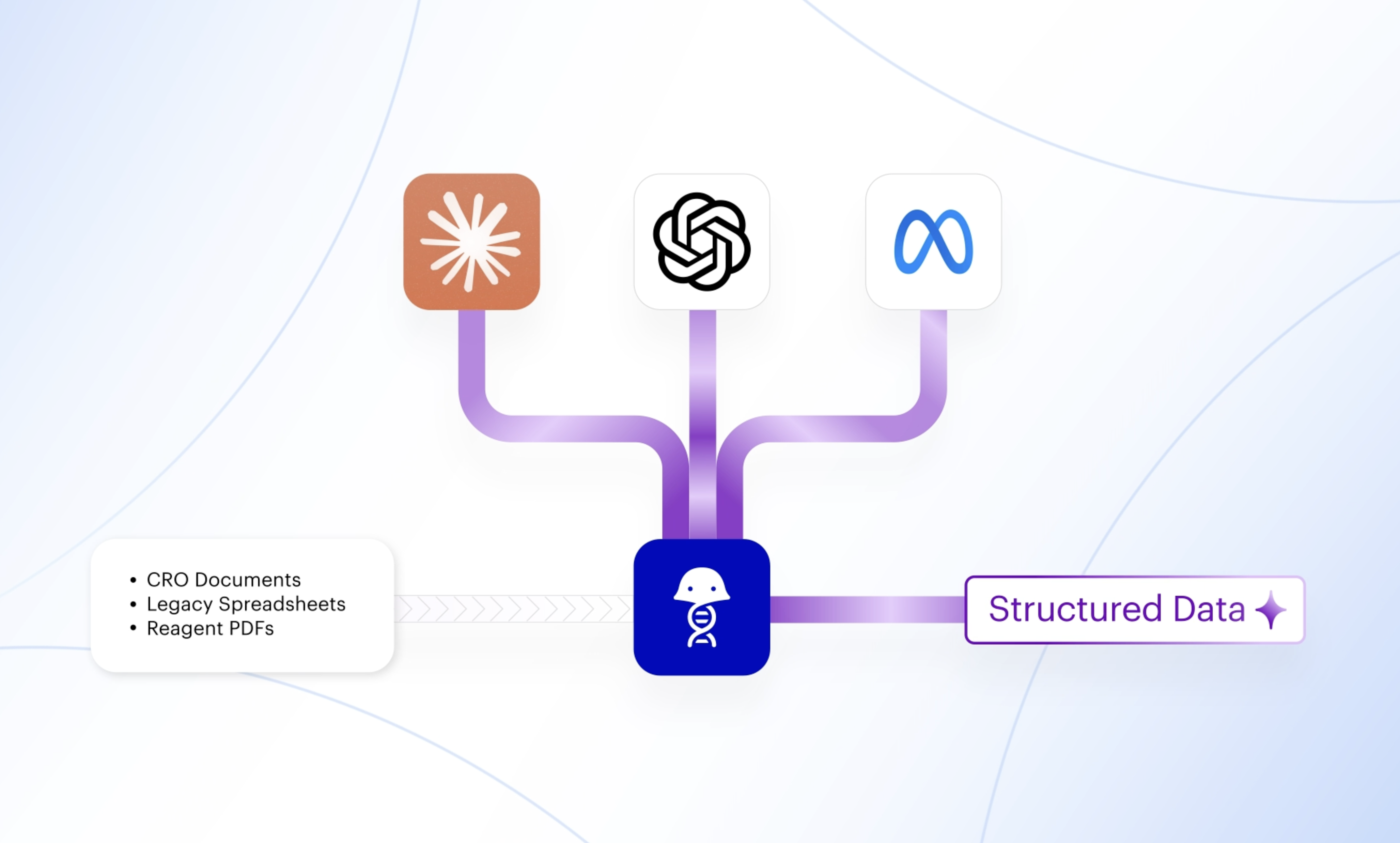AI for every scientist
I was talking to my sister, an MD/PhD researcher, about how AI could accelerate science. I rattled off exciting ideas: AI that could run lab automation, perform bioinformatics analysis, and suggest new hypotheses.
Her response stuck with me: "Yes, but can it first just fill out my lab notebook?"
She was right. Being an academic scientist has never been harder. Funding is tight and labs are stretched thin. Before AI can revolutionize science, it needs to prove itself on the everyday tasks that consume so much time.
Today, we're taking a step in that direction: Benchling AI is now available to all academic scientists. We believe every scientist deserves access to the best tools. Our goal is to take work that took hours or weeks — drafting notebook entries, assembling internal & public knowledge, running predictions — and make it happen in minutes.
Our roots run deep in academia
Benchling's story began in academia more than a decade ago. Our first users were university researchers. Cloud software made it possible to quickly and cost effectively bring industry-grade tools to them.
Talking with academics helped us look into the future of science. In 2014, scientists at the Broad Institute asked us to build CRISPR guide design tools. Back then, few scientists were using CRISPR. Their foresight combined with the democratizing power of cloud software helped bring a once-in-a-generation technology to labs everywhere. Over the last decade, tens of thousands of scientists designed their first CRISPR experiments on Benchling.
Close the gap before it widens
AI can have that same impact, but only if it’s easy to access. Right now, it’s often limited to the technical few and the best-resourced labs. Wet lab scientists still wait weeks for computational experts to run simulations. ChatGPT does wonders, but few have the prompt engineering skills to make it reliably work for scientific use cases.
Benchling AI brings agents, models, and structured data together in one place. A grad student in a five-person lab can operate with the same capabilities as a team at a major pharma company. A handful of academic labs have been testing it out, and here are some of their favorite use cases:
Find that sequence someone designed years ago, the one no one quite remembers
Run structure predictions in one click, no coding expertise required
Design protocols by combining internal methods with the latest research
Automate experimental documentation from scattered files and images
Summarize weeks of recent work into talking points before a lab meeting
Try Benchling AI
Benchling AI is now available to all scientists across the 7,500+ academic institutions and 1,300+ industry companies on our platform. Every researcher will have free access with reasonable usage limits that we expect to increase over time.
Our goal is to put AI directly into the hands of every scientist. Make it available in the same place as their data, deeply embedded in the tools they’re using every day. No grants or bureaucratic approval required. Just a .edu email address and the curiosity to try something new.
Access is rolling out in waves.
For academics: Sign up here (.edu email required).
For customers: Details on how to activate Benchling AI, along with information on data protection and security, are available on the help page.



